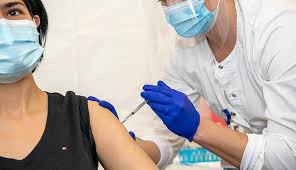
Mary Gilmore, Staff Writer
In recent years, mRNA vaccines have become a major debate in public media. Political figures and media outlets have been found continually promoting the idea that mRNA vaccines are unsafe or experimental. This discourse has especially been advanced by the creation of the mRNA COVID-19 vaccine.
This narrative, however, is not supported by scientific evidence. mRNA vaccines, and particularly those that have been developed for COVID-19, have undergone rigorous testing and decades of research. The time in the laboratory has shown the vaccine to be both safe and effective.
Contrary to claims that mRNA vaccines were rushed into production, their development actually spans over 30 years. As reported by Nature Reviews Materials, research into mRNA began in the 1960s, with early experiments demonstrating its role in protein synthesis. By the 1990s, scientists were then testing mRNA-based therapies in mice. By the early 2000s, clinical trials were underway for mRNA-engineered dendritic cells and cancer immunotherapies.
The COVID-19 pandemic accelerated funding and collaboration between scientists to create an mRNA vaccine as soon as possible. However, those scientists did not shortcut any safety protocols, but rather had more resources to create the vaccine.
Understanding how mRNA vaccines function is important to understanding their safety. mRNA is a molecule that aids in protein synthesis in the body. It travels to a ribosome to get translated into a protein.
In the case of COVID-19 vaccines, the mRNA encodes for the virus’s spike protein. This protein is a harmless fragment that cannot cause disease. Once injected, the mRNA enters a cell and finds a ribosome so it can be translated. The mRNA does not enter the nucleus and therefore does not interact with any DNA at all. This contradicts this false narrative that mRNA vaccines can change a person’s DNA. Additionally, the CDC has had virologists and molecular biologists repeatedly debunk that claim.
After the mRNA has been translated into the spike proteins, it prompts the immune system to generate antibodies that can help protect the body from a future COVID-19 virus.
The safety profile of mRNA vaccines is well-established. According to the Journal of Pediatrics and Child Health, COVID-19 vaccines prevented up to 19.8 million deaths globally, with a 63% reduction in mortality rates during the pandemic’s peak. In the United States alone, over 230 million people are fully vaccinated, with rare serious side effects.
Despite overwhelming scientific consensus, misinformation still exists. In 2023, lawmakers in Idaho and Montana introduced bills to criminalize administering mRNA vaccines. To support their bill, they looked towards unfounded claims about DNA contamination and fertility risks. These bills failed, but they reflect a troubling trend that political rhetoric can override scientific evidence.
Statements from public figures like Robert F. Kennedy Jr., who claimed mRNA vaccines “cause serious harm, including death,” lack credible support and contradict data from global health agencies. Such claims exploit public fear and rid of trust in life-saving medical inventions.
Leave a Reply